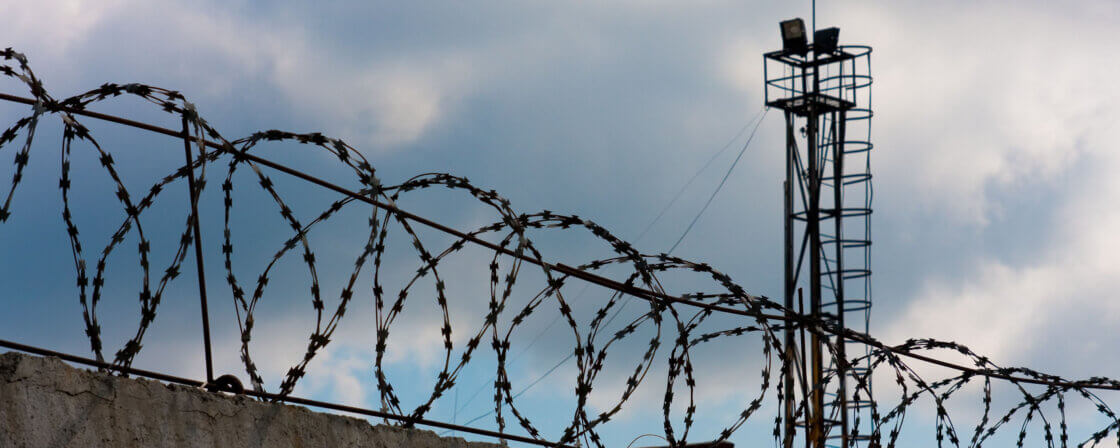Czech prisons are currently facing alarming occupancy rates. At the end of October 2024, there were more than 19 600 prisoners. Given the current capacity of Czech prisons, this is an occupancy rate of 96%. However, some prisons, such as Oracov, are struggling with overcrowding at 115%. The Ministry of Justice has therefore prepared an amendment to the Penal Code to reduce the number of prisoners and modernise the penal system. What changes will the amendment bring?
More fines instead of prison
Courts will be able to impose fines not only for misdemeanours but also for a wider range of offences. The aim is to keep prisons for offenders of the most serious crimes, while judges will be able to deal with less serious cases in alternative ways. In addition, financial penalties allow for reparation for the damage caused. Some experts, however, warn of the risk of judges redeeming themselves from their guilt. The role of the judge and the assessment of the individual case will therefore be all the more crucial.
If the court imposes a financial penalty on a juvenile, it will be obliged to take into account whether the juvenile’s financial circumstances make it possible to pay the fine and whether the juvenile is gainfully employed. The court must take into account “the nature and gravity of the offence committed, the personal, family, property and other circumstances of the offender and his or her previous way of life and the possibility of his or her reformation, as well as the fact that the offender has obtained or has sought to obtain a pecuniary advantage, and, if the offender’s financial or personal circumstances do not preclude it, impose on him or her one of the penalties which will affect his or her property.”
Are you solving a similar problem?
Do you disagree with the court's decision?
Was there a verdict in the courtroom that you disagree with? Do you feel that you should have received a lighter sentence, or was everything a little different than what the other side said? Contact our online legal advice service with your query.
That's what I'm wondering
- When you order, you know what you will get and how much it will cost.
- We handle everything online or in person at one of our 6 offices.
- We handle 8 out of 10 requests within 2 working days.
- We have specialists for every field of law.
Lighter sentences for petty theft, non-payment of child support or endorsement of terrorism
If someone repeatedly commits petty theft or evades paying child support, for example, they may no longer automatically go to prison. Instead, the court may impose fines or other alternative punishment. In addition, for repeat theft, the sentence will be reduced from the current 6 months to 3 years to a maximum of 2 years.
For property and economic offences, it should be possible to impose house arrest, suspended sentences or community service. Judges should also take into account the amount of damage caused by the offender’s actions when imposing a sentence.
Similarly, the penalty for approving terrorism on the Internet will be lower. Specifically, “endorsement of the offence and praise of its perpetrator, where this occurs over a publicly accessible computer network, where they are set for statements on social media that have no real potential to incite the commission of terrorist offences.” Under current conditions, offenders who supported the actions of others in this way could receive a prison sentence of between five and 15 years. The new range will be 2 to 9 years.
This approach reflects an effort to minimize incarceration for minor offenses that burden the prison system and do not address the root causes of delinquent behavior.
Legal possession and cultivation of small amounts of cannabis
Under the proposal, it will be legal to grow up to three cannabis plants and possess no more than 50 grams of cannabis outdoors. You can then keep a maximum of 25 grams at home. If a person grows between four and five plants, they will be committing an offence. However, with more cannabis plants grown, he or she will already be committing a criminal offence. It is a pity that a more drastic change in this area has not been pushed through. The Czech Republic could have been a leader throughout the region and set the rules in favour of dismantling the black market.
Tip for article
Tip: The amendment will give judges more responsibility in assessing the offender’s financial status in light of the imposition of fines as punishment instead of imprisonment. Read how to become a judge and what the profession entails.
Tougher penalties, increased punishments and a new offence
The amendment expands the definition of bias crimes, i.e. those committed out of hatred. In this way, the government wants to better protect vulnerable groups. For example, it will now be possible to impose a harsher penalty for a targeted attack on a disabled person.
Furthermore, the penalties for natural persons are to be extended. Courts will now be able to prohibit the accused from performing public contracts or participating in public tenders. They can also prohibit him from receiving subsidies or subsidies.
At the same time, a new criminal offence will be introduced, namely unauthorised activity for foreign power. This will make it a criminal offence to challenge or pass on information to a foreign power, in response to current security challenges.
The amendment should therefore bring a more effective and humane approach to criminal law that reflects the current challenges in the prison sector, including staff shortages and increasing aggression among prisoners. Yet its success will depend on how it is applied in practice and how the public perceives changes in penal policy.




